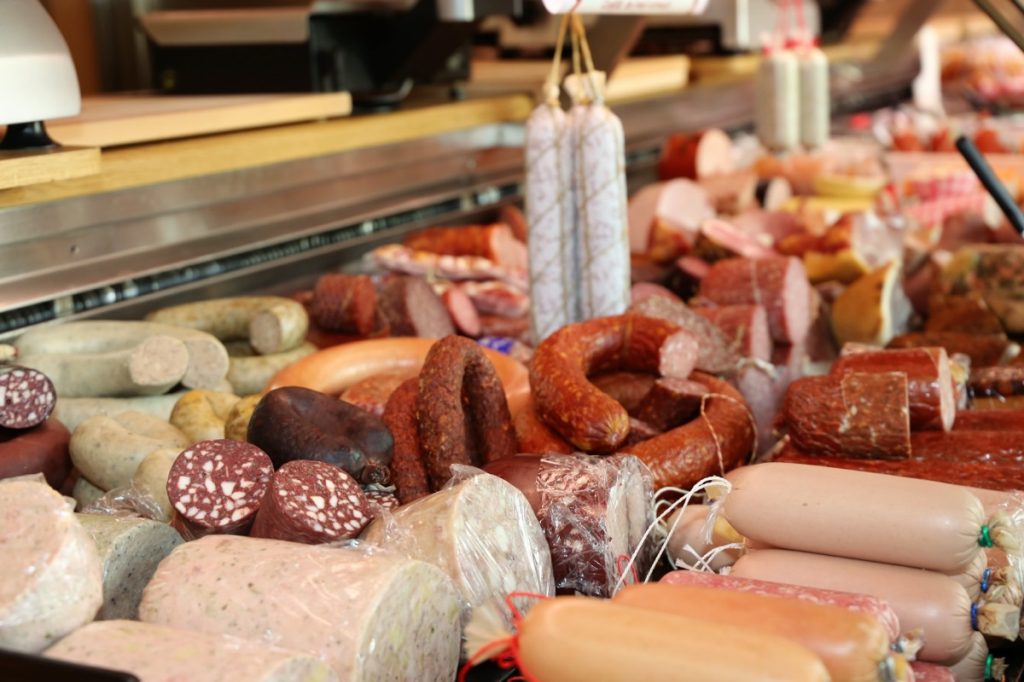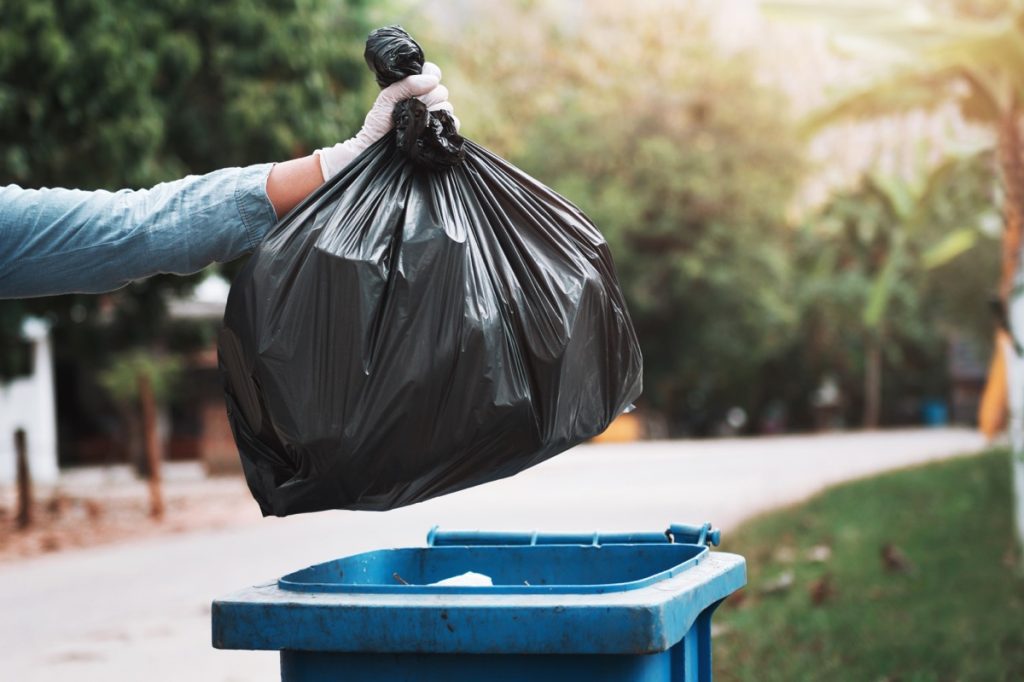53,000 Pounds of Sausage Recalled Due to Listeria Fears, USDA Warns

Sausage is the type of food product that can make its way into more meals during the day than most people may realize. They can go alongside eggs at breakfast, make for an easy hand-held lunch on the go after a quick stop by a hot dog cart, and get tossed on the grill as part of your main dinner course. In some cases, when it’s cured, it can even make its way directly from the fridge and right onto your sandwich or charcuterie board. But now, the U.S. Department of Agriculture (USDA) is warning that you may want to double-check your kitchen after nearly 53,000 pounds of sausage were recalled. Read on to find out more about the latest health scare.
READ THIS NEXT: 28,000 Ovens Sold at Lowe’s and Home Depot Recalled After Reports of Carbon Monoxide Leaks.
The USDA just announced a major sausage product recall.

On Jan. 29, the USDA’s Food Safety and Inspection Service (FSIS) announced that Rhode Island-based Daniele Internation LLC had recalled 52,914 pounds of ready-to-eat (RTE) sausage products. The affected items include 6-ounce plastic trays of “FREDERIK’S by Meijer SPANISH STYLE charcuterie sampler tray” with the sell-by date 4/15/23; 6-ounce plastic trays of “Boar’s Head CHARCUTERIE TRIO” with the sell-by dates 4/13/23, 4/14/23, and 4/15/23; 7-ounce plastic trays of “COLAMECO’S PRIMO NATURALE GENOA UNCURED SALAMI” with the sell-by date 12/23/23; and 7-ounce plastic trays of “COLAMECO’S PRIMO NATURALE BLACK PEPPER UNCURED SALAMI” with use by dates 12/22/23, 12/30/23, and 1/17/24.
The list also includes 1-pound plastic trays of “DEL DUCA SOPRESSATA, COPPA & GENOA SALAMI” with the sell-by dates 4/13/23 and 4/14/23; 1-pound plastic trays of “DEL DUCA CALABRESE, PROSCIUTTO & COPPA” with sell-by date 5/6/23; 1-pound plastic trays of “DEL DUCA GENOA SALAMI, UNCURED PEPPERONI & HARD SALAMI” with use-by date 5/4/23; and 12-ounce plastic trays of “Gourmet Selection SOPRESSATA, CAPOCOLLO, HARD SALAME” with the sell-by date 4/14/23.
The notice specifies that the affected items were produced on various dates from May 23, 2022, through Nov. 25, 2022. They were then shipped to retail locations nationwide on various dates from Dec. 23, 2022, through Jan. 17, 2023.
The products were pulled from shelves over bacterial contamination concerns.

According to its notice, the USDA said that Daniele International issued the recall after a routine FSIS inspection of a production facility found evidence of Listeria monocytogenes on surfaces with which the food products came into contact. Ingesting the microorganism can lead to an infection known as listeriosis, which can cause symptoms such as “fever, muscle aches, headache, stiff neck, confusion, loss of balance, and convulsions sometimes preceded by diarrhea or other gastrointestinal symptoms.”
In some cases, the infection can become serious and spread beyond the gastrointestinal tract. The agency also warns that this can be particularly dangerous in certain people, especially in those who are older or immunocompromised. It can also cause “miscarriages, stillbirths, premature delivery, or life-threatening infection of the newborn” in those who are pregnant.
RELATED: For more up-to-date information, sign up for our daily newsletter.
Here’s what you should do if you purchased any of the recalled sausage and charcuterie products.

FSIS says even though it’s already taking steps to ensure that the items are no longer available for sale, it’s concerned that customers who purchased the recalled sausage and charcuterie items may still have them in their refrigerators. The agency advises anyone who realizes they have any of the affected products at home to throw them out immediately or return them to their place of purchase.
While there have been no confirmed reports of adverse reactions related to the recall, FSIS recommends that anyone concerned they may have become ill should seek medical attention immediately. They add that anyone who falls into the high-risk categories for infection should be especially cautious and visit a healthcare provider if they experience flu-like symptoms anytime within two months after eating food contaminated with the bacteria.
Other recalls have been recently issued due to potential contamination.

Unfortunately, the latest health scare over sausage and charcuterie is far from the only time recently when food has been recalled over potentially serious contamination issues. On Dec. 3, the Food & Drug Administration (FDA) announced that food supplier James Farms had issued a recall on 1,260 cases of frozen raspberries it distributed across nine states. The agency warned that the product was flagged after discovering the fruit product could be contaminated with hepatitis A.
In the non-food sector, the Consumer Product Safety Commission (CPSC) announced on Dec. 12 that Texas-based AlEn U.S.A. LLC was pulling some of its Art of Green laundry detergent products from shelves. The recall affected 14,550 units sold at stores such as Save Mart, Lucky, and Food Maxx, as well as online at Amazon.com. The company said it flagged the products after discovering they could be contaminated with Pseudomonas aeruginosa bacteria, which poses “a risk of serious infection that may require medical treatment” to anyone who is immunocompromised or uses an external medical device.
And on Jan. 25, Snack Innovations Inc. announced that it would be voluntarily recalling “several batches” of its Drizzilicious brand mini rice cake bites and drizzled popcorn. In this case, the FDA said that the products were pulled due to the potential for “undeclared peanut residue” in the items, which poses a serious health risk to anyone with an allergy or sensitivity.